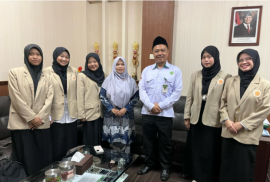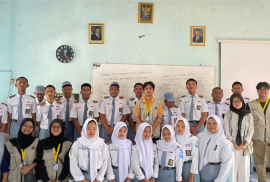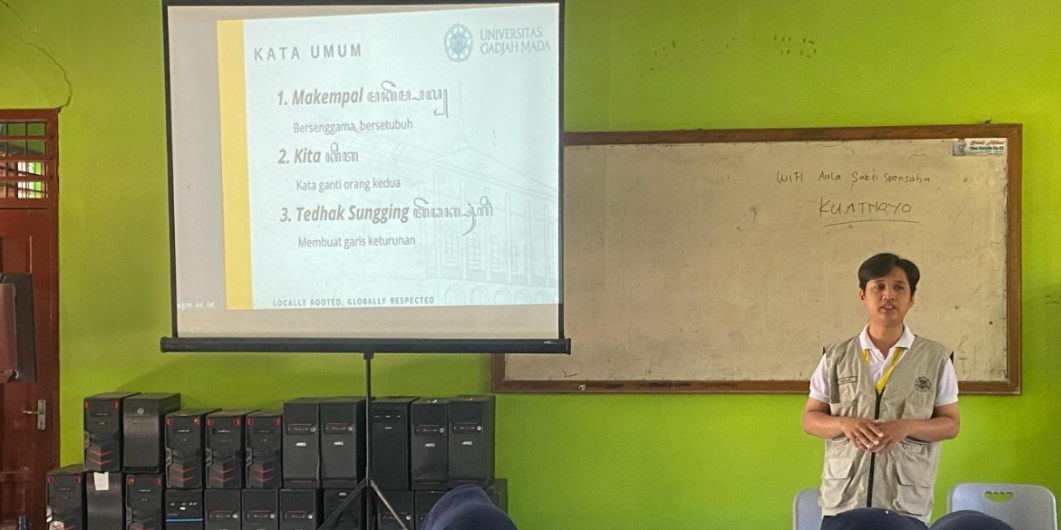Yogyakarta, 8/9/2025 – A total of 36 students from the Arabic Study Program, Faculty of Cultural Sciences, Universitas Gadjah Mada (UGM), successfully completed internship programs during the even semester of the 2024/2025 academic year. The internships took place across a wide range of institutions, including government offices, publishing houses, educational institutions, media outlets, and private companies.
The program serves as a crucial part of the students’ learning journey, allowing them to not only apply their academic knowledge but also sharpen practical skills needed in today’s workplace.
UGM Arabic Study Program students were placed in diverse institutions, spanning both public and private sectors. These included: the Ministry of Religious Affairs (Sleman, Bantul, Purworejo, Yogyakarta City, and Regional Office of Yogyakarta); publishing and media outlets such as Brilliant Books, Mojok Publishing, Deepublish, and Tirto.id; educational institutions such as SDIT Al-Khairaat, Miftahul Huda Islamic Boarding School (Kroya, West Java), and MAN 2 Yogyakarta; state agencies such as the National Narcotics Agency (BNN) of Yogyakarta, LLDIKTI Region V Yogyakarta, and the Office of Community Empowerment, Villages, Population, and Civil Registration of DIY; as well as private sector and companies including At-Tayibah Al-Multazam Group (Umrah & Hajj Travel) and Telkom Purwokerto.
Through this program, students are expected not only to gain first-hand work experience but also to build professional networks, strengthen their communication, literacy, and research skills, and apply their Arabic language expertise in real-world contexts.
The participation of Arabic Study Program students across various sectors also highlights the program’s commitment to supporting the Sustainable Development Goals (SDGs), particularly SDG 4 (Quality Education), SDG 8 (Decent Work and Economic Growth), and SDG 17 (Partnerships for the Goals), by fostering meaningful collaboration between higher education, government, and industry.
With this internship experience, it is hoped that the students will enrich their academic competencies while preparing themselves to become excellent, adaptive graduates ready to contribute to society.
Author: Muhammad Ardiansyah











